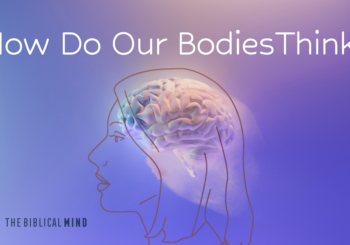Part of the American Religion vs. the Bible series
Expressive Individualism: Our Twenty-First Century American Ba’al
During the middle of the twentieth century, the great German theologian Dietrich Bonhoeffer wrote that the Western world was a “world come of age,” by which he did not intend a compliment; he meant that Westerners had learned to manage life without reference to God and that life without God is deeply unhealthy for individuals and for society and culture. Bonhoeffer’s insight was prophetic.
This is not to say that Westerners are irreligious. Scripture teaches that all people are religious. We are always worshiping; we are always orienting our hearts either toward the God of Abraham, Isaac, and Jacob or towards false gods such as Ba’al. Yet, unlike the people of the Ancient Near East, our idols are not usually shaped in the image of a golden calf. Instead, our idols tend to be metaphorical; we give our love, trust, and obedience to things in this world such as sex, money, power, and the approval of others.
Enjoying this article? Read more from The Biblical Mind.
Additionally, we build ideologies around our idols to support them and work out their logical implications in our lives. One such ideology is “expressive individualism.” And, although most Westerners may not be aware of this phrase, they are likely very aware of its practical reality.
Expressive individualism (EI) is a label used to describe an ideology that has arisen during the past several hundred years, an ideology that has gathered steam and now dominates Western culture. EI is the view that the whole point of a person’s existence is to be authentic; that, for individuals to be authentic, they must align their lives with their deepest desires; and that, for societies to be authentic, they must applaud individuals for aligning life with their deepest desires. (For an excellent scholarly treatment of EI, read Carl Trueman’s The Rise and Triumph of the Modern Self.)
The Rise of Expressive Individualism
By the dawn of the twenty-first century, many cultural analysts had come to agree with Bonhoeffer that Westerners had learned to live without reference to God. Jewish-American sociologist Philip Rieff, for example, argued that the cultural influencers of the Western world had conspired to sever “social order” from “sacred order,” by which he meant that they had created a society that was severed from its Judeo-Christian heritage. Similarly, Canadian philosopher Charles Taylor, who explored the emergence of EI, argued that Westerners had learned to live life within the “immanent frame,” without any transcendent point of reference.
Bonhoeffer, Rieff, and Taylor are right. Westerners in general, and Americans in particular, have learned to live life without any real reference to God. Because of our relative wealth, we tend not to lean on God for material provisions. Because of modern medicine, we rely on doctors and surgeons when our health is fragile, and don’t see God as the ultimate healer. Because of modern therapy, we tend to ignore the role he should play in the right ordering of our hearts and minds. Because of the entertainment industry, we are distracted from him and the Scriptures when we could be delighting in him and his Word. These historical conditions encouraged the belief that humans are meant to be captains of their own destinies and sculptors of their own identities according to their authentic desires. In other words, these historical conditions encouraged the rise of EI.
Consider, for example, the way many people today set forth today to redesign their lives according to their immediate desires. This might be a man who decides to follow his dreams by choosing to advance his own career or social status, often at the expense of his family, church, and friends. Further, this man who has absolutized his career will sometimes be willing to sacrifice his professional integrity by undermining peers he views as competitors or fudging on his profession’s ethical standards. Or, consider an instance in which a woman takes an “affirmational” view of her friendships; in this view, her friends exist to affirm her life decisions and thus they must, for example, approve of her decision to take money fraudulently from her workplace because, after all, she is struggling financially. Such an affirmational view of friendships is part and parcel of EI, as opposed to the biblical view in which friendship is “aspirational” and involves friends discouraging foolish or sinful actions while encouraging wise and righteous life choices. (For an excellent exploration of EI in popular culture, read Trevin Wax’s Rethink Your Self.)
Indeed, so ingrained is this EI ideology in Western minds that readers of this article might find themselves nodding their heads in approval of its claims. So, what is it that makes EI a false ideology? It is built around the false “god” of individual desire. Scripture makes clear that we must be careful not to naively follow our own desires; the point of life is to follow God’s desire for our lives, and only to follow our own desires when they align with God’s.
True to Yourself—or True to God?
Scripture teaches, first, that each of us is created in the image and likeness of God (Gen 1:26–27). To be human is to be the image of God. In the ancient Near East, kings created images of themselves out of gold or silver or precious stones. But in the case of God—the ultimate King of the universe—precious metals or stones were not proper images for him. Instead, he created us—human beings—as his images.
This is a striking truth, and a truth that carries with it serious ramifications for the way we should live. Our calling in life is to be ambassadors of God the King (2 Cor 5:20), to glorify him in all that we say and do (1 Chron 16:28–29). We are to represent the King, answer to the King, and promote the King. In other words, as opposed to EI, we are created to fulfill God’s desire for us rather than our often-warped desires for ourselves. For Christians, a recognition of God’s kingship over our lives and an attendant rejection of EI’s claims, will sometimes make life uncomfortable for us personally as we wrestle with the sinful desires of our own hearts, and will sometimes make our interpersonal relationships difficult because we will not be able to approve of the unhealthy, warped, or sinful desires upon which our friends or acquaintances act.
Second, Scripture teaches that God created us as souls and bodies that work together. When we act on errant desires in relation to God’s creative intent for our bodies, we harm our hearts and souls because our hearts and souls are one with our bodies. Conversely, when we think and act errantly in our hearts and souls, we in turn negatively affect our bodies; when we determine in our hearts to take the path of folly instead of the path of wisdom or the path of sin rather than the path of righteousness, there will be consequences. We will not flourish as God intended. In other words, when we act against God’s designs, it hurts us holistically.
Romans 12:1-2 is a key passage in this respect. In this text, Paul instructs the Romans to give their bodies to the Lord as a living sacrifice and to be transformed by the renewing of their minds. His instruction to the Romans applies to us today. Paul is saying that we should be transformed in the whole of ourselves, letting all our bodily expressions align with our spiritual worship of God. In other words, Paul is calling us to let God renew us inwardly so that our inward renewal will eventuate in a reformation of our words and actions.
Third, Scripture teaches that God created us to live in community. At the very beginning, he created us to live within marriages and families (Gen 1:27). By implication, this also means that he created us to live in larger communities and societies; marriages and families are always, in one way or another, embedded in larger communities. No man or woman is an island. As members of communities and societies, we belong to each other. Thus, the choices we make, the things we do, the words we say are all related to a larger community of people.
What, then, should we make of the American Ba’al of EI? We should reject it. We should be guided by Scriptural teaching about God’s desire for an individual’s life and by its view of the individual’s value within broader communities and, specifically, within the community that is the people of God. We are all immersed in an era of EI, affected by it unaware. So, it will be difficult not to worship at its altar, even if only unconsciously.
The biblical picture of God’s design for humanity centers on humanity-in-community. Consider God’s intent for Israel. Throughout each of Israel’s eras—tribal confederacy, monarchy, diaspora—he called Israel to be a “people” and not an “aggregate of persons” and gave instructions for their corporate life together; indeed, Israel’s call to be a “light to the nations” (Is 49:6) centered on its corporate witness. Similarly, during the earthly life and ministry of the Lord Christ, it was Jesus and a group of twelve who lived together, cared for one another, and bore corporate witness together. Yet again, when the Lord ascended, he told his disciples to wait for the arrival of the Spirit (Acts 1:7–8), and the first thing the Spirit did was to incorporate local church communities (Acts 2:40–47).
We must not be complicit. When the world around us urges us to follow our own desires, however, twisted they may be, we must choose rather to follow God’s desires for us. When the world encourages us to follow our sexual desires, even when they are at odds with God’s design for sexuality, we must refrain. When our society urges us to gain wealth or power in unethical ways, we must beg to differ. If we do not, the cause-and-effect consequences will be painful. We cannot flout God’s creational design forever with impunity.
We owe it to God and to our neighbors to image God in this world, to refuse to follow our desires if they conflict with God’s desire for us. When we satisfy our desires in ways that are at odds with God’s, we harm our own bodies and souls. When we act on our impulses apart from God’s desires, we harm the surrounding community. Thus, to be authentic, to image God as he intends, we must align our lives with God’s desires and applaud those who do the same.
In other words, Christians must create an anti-culture in our Western culture of Expressive Individualism. We must engage public issues even at our own expense. Like the early church, which was a marginalized sect in a society that rejected God, we can be good citizens of our earthly city—the United States of America—while pledging our ultimate allegiance to the heavenly city and the Lord Christ, its King.
Subscribe now to receive periodic updates from the CHT.
Image created by Rubner Durais





